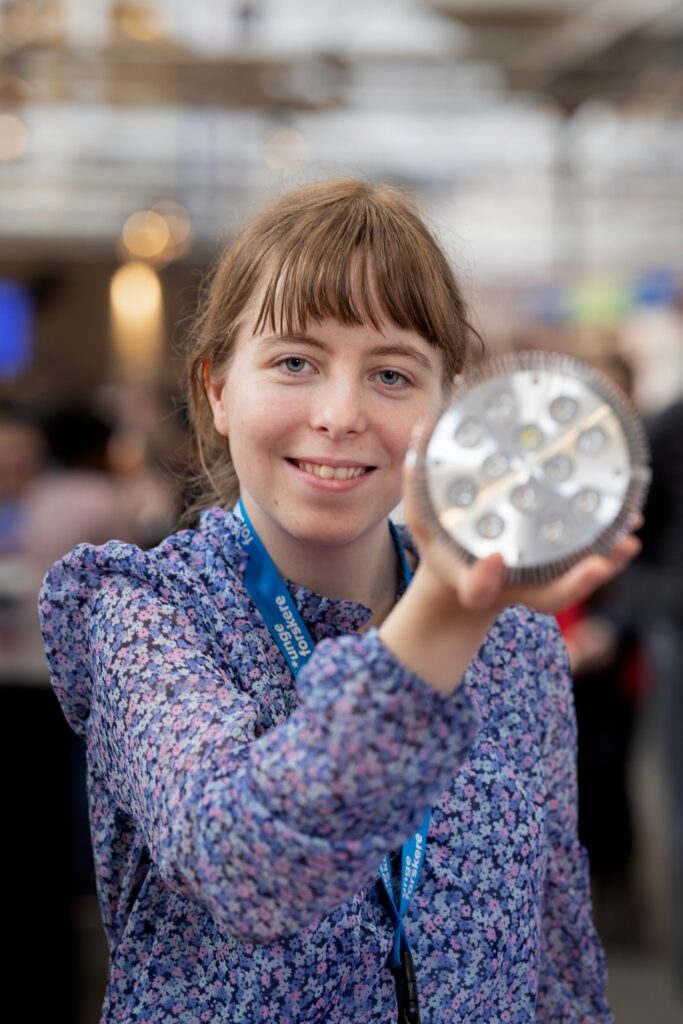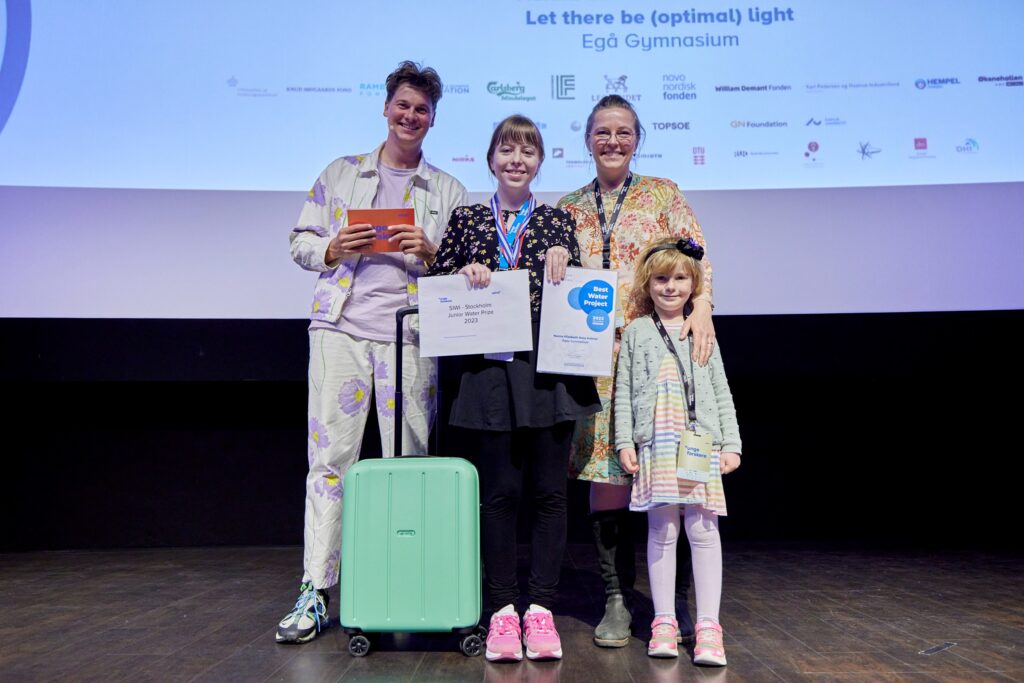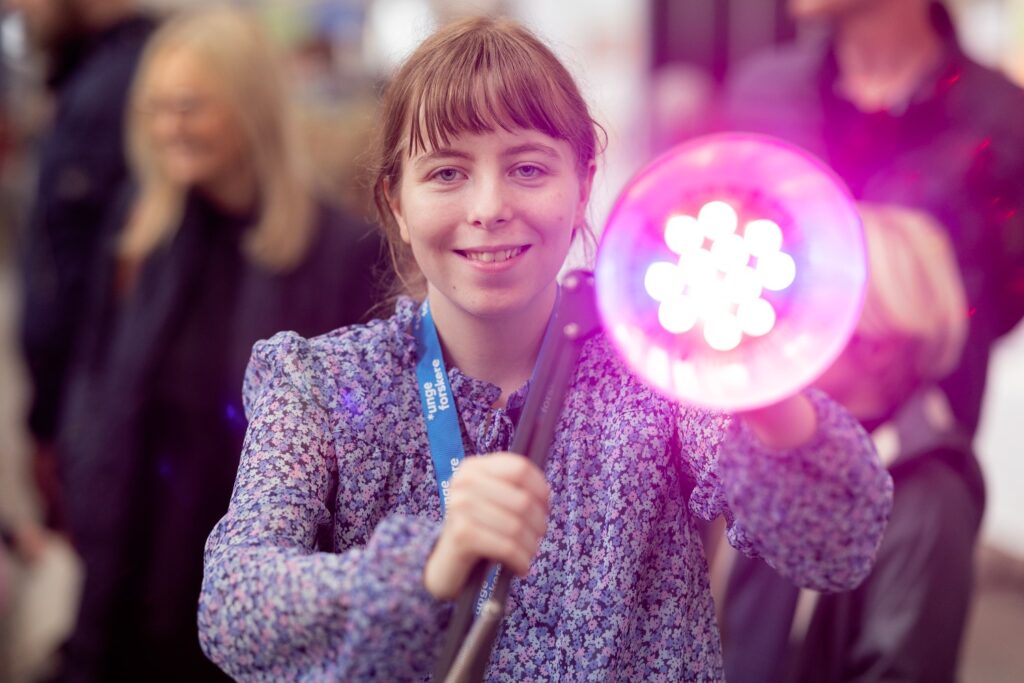Vertical farming has the potential to reduce water consumption in food production by 50 per cent. The downside however is high energy consumption as the plants need artificial light to grow. Nanna Kalmar has investigated how to optimize the energy consumption in vertical farming through determining the optimal lighting period.

The plants in Nanna’s study only needed 7 hours of light per day to reach optimal growth conditions. Photo: ASTRA
Nanna concluded that seven hours of light per day ensures optimal growth conditions. Her study has produced a great data set which is very well described. The study is a very thorough piece of work – and very relevant to reduce our global CO2 emissions.
Impressive project
Besides her experiments on plants, Nanna has reviewed the existing research in the area. Her report is extremely well-writtten and has impressed the jury a lot.
“In her research, Nanna points out that very few researchers have investigated the energy consumption compared to the volume of plant mass produced. She has therefore designed and performed experiments to investigate how we can optimize the production of plant mass,” says Poul Toft Frederiksen, Head of Research
An unanimous jury (Assistant Professor Morten Lykkegaard Christensen, AAU, Assistant Professor Kasper Reitzel Jensen, SDU, and the Foundation’s Head of Research, Poul Toft Frederiksen) Have therefore selected Nanna as the Danish finalist in the international youth science competition, Stockholm Junior Water Prize. The selection was announced on Tuesday 25 April in connection with the Danish national youth science competition, Unge Forskere, organized by Astra (National Center for Science Education)

Nanna will participate in Stockholm Junior Water Prize in August 2023. From left: Danish influencer Rasmus Kolbe, Nanna Elizabeth Rosa Kalmar, the Foundation’s Communications Specialist Anne Bisgaard Christensen and her daughter Cecilie Bisgaard. Photo: ASTRA
A great experience lies ahead
Stockholm Junior Water Prize takes place in Stockholm in August. Here, Nanna will be part of the global World Water Week conference, face an internationaljury, and meet young science talents from more than 30 countries who also take an interest in sustainable water solutions.
The Foundation and Grundfos send their warmest congratulations to Nanna and wish her the best of luck in Stockholm.


